You have made the important decision to purchase a Dust Extractor but are unsure which one you need. That’s ok, we can help you with that. First, let’s explain a little more about the mighty Dust Extractor.
Dust Extractors are one of the most important pieces of equipment you will need in a workshop environment. Becoming dust free is an important step to ensuring the health and safety of your workers. Dust Extractors are required to remove dust and particles sanded from work materials like MDF, timber, particleboard, cement, fibreglass, etc to prevent hazardous airborne dust from reaching the lungs, causing illnesses such as Silicosis or Lung Cancer. The Dust Extractor also keeps your work area clean, making it easy to work and saving time on cleaning, providing better efficiency.
Dust Extractors are categorised by the level of filtration. Suitability is indicated by the level of exposure and by what materials are producing the dust.
The different dust classes used in most industries including the wood industry are L class for light hazard and M class for medium hazard.
Dust classes used in most industries
| L (light hazard) dust class |
M (medium hazard) dust class |
 |
 |
| 99% filtration efficiency |
99.9% filtration efficiency |
|
Suitable for:
• dusts with a workplace exposure standard > 1 mg/m3 (8-hour TWA*)
• gypsum/ plaster
• aluminium
• general dust and dirt.
|
Suitable for:
• dusts with a workplace exposure standard ≥ 0.1 mg/m3 (8-hour TWA*)
• wood dusts (e.g. MDF).
|
Source: www.worksafe.qld.gov.au
*8-hour time-weighted average (TWA) is the maximum average airborne concentration of a substance when calculated over an eight-hour working day, for a five-day working week. Further guidance on workplace exposure standards is available at safeworkaustralia.gov.au/exposure-standards.
How to determine which class Dust Extractor is suitable.
Ensure you are aware of what materials you are sanding, you can always check with your supplier if you are unsure exactly what the materials contain.
If you are working in an industrial setting, it is likely that an M class would be suitable unless you are working in the stone benchtop industry, whereby an H class Dust Extractor is required.
Please ensure you check which class of Dust Extractor you require before purchasing as the hazardous materials contained in your substrate can cause serious illness and harm. Another thing to bear in mind Is that Work Safety is also enforceable, and business owners are required to adhere to health and safety regulations.
Comparing Dust Extractor features is also a good idea as this may also be a deciding factor for you. Let’s dissect Mirka’s Dust Extractor range and the differences between each model.
| |
MIRKA DUST EXTRACTOR 1025 L PC
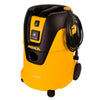
|
MIRKA DUST EXTRACTOR 1230 L PC
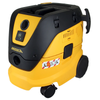
|
MIRKA DUST EXTRACTOR 1230 M AFC
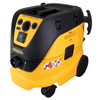
|
| Dust class |
L class |
L class |
M class |
| Usage |
• Sand
• Soft wood
• Gypsum/ plaster
• Aluminium
• General dust and dirt |
• Sand
• Soft wood
• Gypsum/ plaster
• Aluminium
• General dust and dirt |
• Hard woods (e.g. MDF)
• Paint
• Plaster
• Putty |
| Filter cleaning system |
Push and clean |
Push and clean |
Automatic filter cleaning |
| Power input |
1000W |
1200W |
1200W |
| Voltage main supply |
220-240 VAC |
220-240 VAC |
220-240 VAC |
| Noise Level, LpA |
64 dB |
60 dB |
60 dB |
| Main frequency |
50/60 Hz |
50/60 Hz |
50/60 Hz |
| Volume flow air |
3600 l/min |
4500 l/min |
4500 l/min |
| Vacuum |
210 mbar |
250 mbar |
250 mbar |
| Tank volume |
25 Litres |
30 Litres |
30 Litres |
| Dimensions |
H 530mm x L 395mm x W 375 mm |
H 565 mm x L 565mm x W 385 mm |
H 565 mm x L 565mm x W 385 mm |
| Weight |
8kg |
14.5kg |
14.5kg |
| Dust hose supplied |
No |
No |
No |
| Anti-static machine
|
No |
Yes |
Yes |
| Features
|
• Auto start function
• Easy manoeuvrability
• High performance motor
• 2 + 1 year warranty
• Push & clean filter cleaning
• Carry handle
• 5 metre cable
|
• Auto start function
• Easy manoeuvrability
• High performance motor
• 2 + 1 year warranty
• Push & clean filter cleaning
• Can store Mirka case on top of the dust extractor (with Fastening Kit)
• Hose hook
|
• Auto start function
• Easy manoeuvrability
• High performance motor
• 2 + 1 year warranty
• Automatic filter cleaning
• Can store Mirka case on top of the dust extractor (with Fastening Kit)
• Hose hook
|
What is the difference between PC and AFC Dust Extractors?
PC stands for “Push and clean” – these Dust Extractors require a simple push of the button to clean the filter. The filter can be removed through a separate opening in the rear of the machine.
AFC stands for “Automatic filter cleaning” – these Dust Extractors clean themselves every 15 seconds which massively improves the Dust Extractor’s performance. The AFC models require less maintenance and provide the ability to work without dust bags.
NOTE: Don’t be alarmed if the AFC model sounds like it’s about to explode – It is just the thorough automatic filter system doing its job! There is no need to phone us, the police or the fire brigade! (haha)
What if you need to use a Dust Extractor for wet applications?
Mirka Dust Extractors can be used for both wet and dry use when the dust bag is removed, and the filter is cleaned both before and after use. Keep in mind though, that an acceptable amount of liquid to vacuum would be a small spill.
Can more than one sander be used at a time with the Dust Extractor?
You can use 2 sanders at a time with Mirka Dust Extractors, so long as the wattage does not exceed the max limit shown on the Dust Extractor. You will need the
Dual Vacuum Kit installed to be able to use two machines at a time.
What else should I know about Dust Extractors?
Mirka Dust Extractors do not include a hose, so you can easily choose the length of the hose that is suitable for your particular use. The lengths available are
4 metre and
10 metre hoses. It is also important to note that it is strongly advised to get a
Hose Sleeve to protect your hose and keep the tool cable together with the hose. The hose may also interfere with your work as it can get caught on edges from time to time.
It is also important to note that PPE should be worn when removing the hazardous materials from the Dust Extraction machine.
Be sure to contact Best Abrasives if you have any questions about which Dust Extractor is best for you.
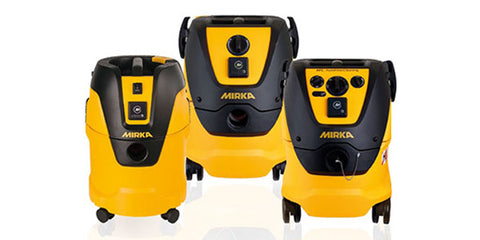











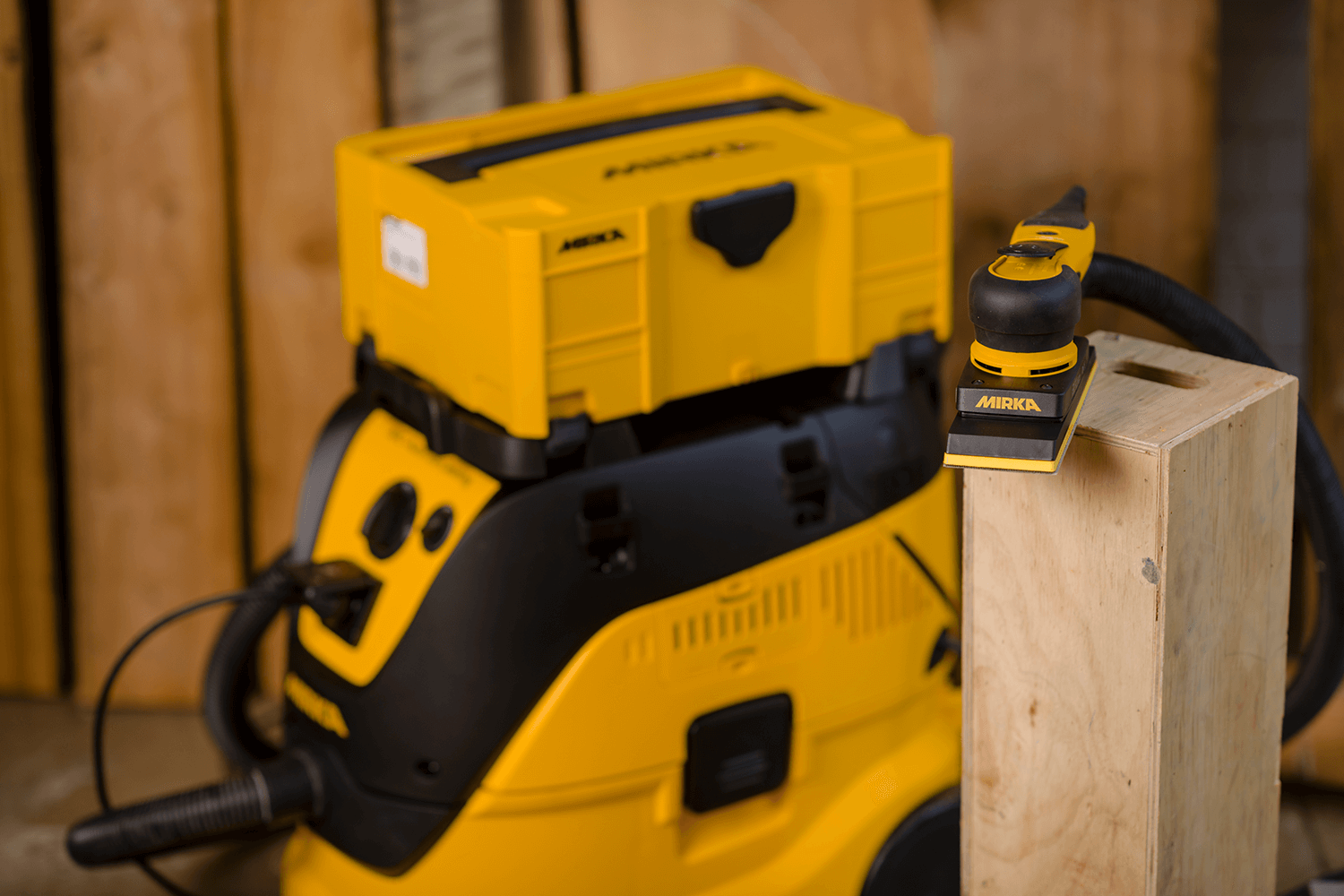
1 comment
Amazing information, Thanks for sharing it with us. I also taking services from https://www.supersyrup.com.au/. They have great products and I love their services!